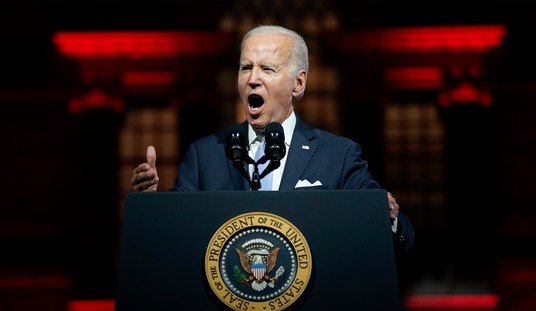The Supreme Court’s decision last week in Boumediene v. Bush has justifiably called down the exasperation, incredulity, and anger of people who have actually read the United States Constitution. In case you missed it, the 5-4 majority opinion written by Justice Anthony Kennedy and joined by the Court’s four avowed liberals extended for the first time in history habeas corpus rights to captured military combatants.
In doing so, the Court struck down a 2006 law passed by overwhelming bipartisan majorities in both houses of Congress, which specified the procedures by which captured terrorists held in military prisons could receive due process. The 2006 law, the Military Commissions Act, was only written, passed, and enacted because the Supreme Court in 2004 demanded that Congress do so. Put another way, as of last week, the Supreme Court – and more specifically, Justice Kennedy – has declared itself the final authority on making war, incarcerating enemy combatants, and, indeed, on the American people’s right to self-government.
This is not judicial activism. It is judicial tyranny.
Neither the United States military, its elected commanders in the executive branch, nor its representatives in Congress are now in control of America’s prosecution of the war on terror. Justice Kennedy is, or he seems to think.
Until he is disabused of this notion by a Congress with the guts to assert itself, the following not only may happen, but will, and very quickly:
- Captured terrorists will refuse to answer any questions without access to a lawyer;
- Captured terrorists will demand the public disclosure of the military’s evidence against them, thus exposing the means and methods employed by our intelligence community to gather such evidence;
- Captured terrorists will demand to confront their accusers, who will be soldiers on the front lines in Iraq and Afghanistan, in open court back here in the states; and,
Recommended
- Captured terrorists will go venue shopping, filing their habeas claims in dozens of courts in hopes of getting the most liberal activist judge they can find.
The question isn’t how bad this decision is – it’s an outrage. The question is, what are conservative legislators going to do about it. Beginning in 1996 and continuing throughout the Republican majority in the House of Representatives, we had an aggressive, concrete agenda to combat judicial activism and supremacy.
Because Congress creates lower federal courts, Congress can also set its jurisdiction. Thus, except for the narrow field of cases in which the Supreme Court has original jurisdiction – cases involving individual states, ambassadors, and the like – Congress can simply remove the Supreme Court from the picture. A “court stripping” strategy would reassert the legislative and executive branches’ co-equal status as interpreters of the Constitution. Much of the groundwork has already been set.
In September, 2004, the House passed the “Pledge Protection Act,” which removed the jurisdiction of lower federal courts and the Supreme Court to review any controversies surrounding the recitation of the Pledge of Allegiance.
In 2004 and 2005, House conservatives introduced and vocally promoted similar legislation stripping from federal courts jurisdiction over any question stemming from a public official’s acknowledgement of God as the basis for our laws and government. The House also passed similar court-stripping legislation pertaining to homosexual marriage in 2004.
And all the while, Republican Houses of Representatives passed resolution condemning judicial activism, including judicial mischief such basing decisions on foreign law. Finally, in November, 2005, the House of Representatives passed a bill to break up the consistently radical 9th Circuit Court of Appeals so to introduce some degree of rational jurisprudence to its jurisdiction.
The principles of that agenda can and should be revived and made a major issue in this year’s general election. Resolutions can be introduced condemning the decision, and these superficial actions are a good start. But Congress has far greater authority to end judicial activism than most people realize.
Contrary to the Court’s liberal majority, the United States is our government and our country, not just theirs.Congress has the power to take it back, and Republicans looking for a clear-cut issue that differentiates us from the Democrats should start taking it back.
























Join the conversation as a VIP Member